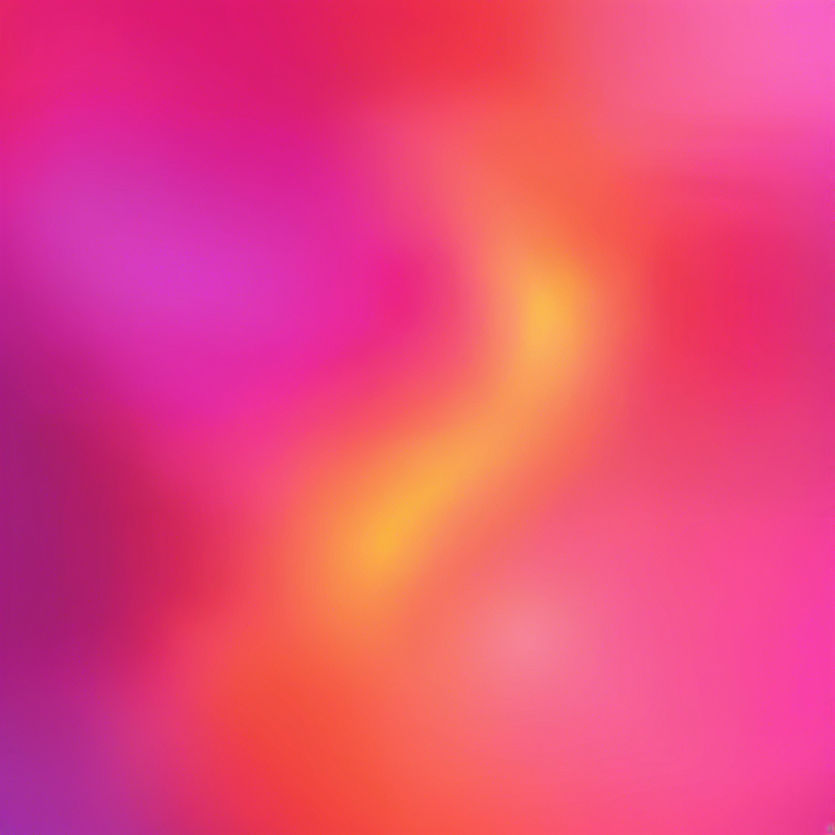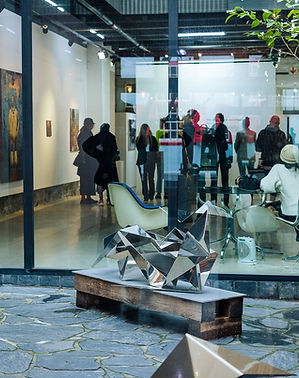

August 6 to 16, 2025
Heat is an exciting winter arts festival set in Cape Town's City Centre. It is brimming with art exhibitions, across 13 galleries and museums. They are all curated to align with the festival theme: Other Worlding
Live music, including jazz and opera, an unmissable theatre programme, raucous stand-up comedy, and cutting-edge digital art works also feature in venues in walking distance of each other.

SUBSCRIBE TO OUR NEWSLETTER
VISUAL ART PROGRAMME
OPENING NIGHT
6 AUGUST, 6PM
13 Curated Exhibtions
5 Guided Walkabouts
5 Talks



QUIET LIFE CO have curated the live music programme for the HEAT Festival this year. Rising singers and musicians will perform at a variety of venues in the city centre.
Opera UCT have partnered with HEAT and will present 2 Opera performances by some of their most promising students. The programme has been curated by Jeremy Silver, a celebrated conductor, pianist and director at Opera UCT



The festival's youth-focused programming extends to various art forms. Nkgopoleng Moloi, a judge for the prestigious Fleur du Cap Theatre Awards, has curated a selection of high-quality theatre works created by emerging theatre makers.
This selection includes "Confused Mhlaba" by Kitso Seti, "Don't Believe" by Tankiso Mamabolo, "Lemons, Lemons, Lemons" by Max du Toit, and "Zoo Story" by Michael McKenzie and Francoise Immelman
"



Convergence (left): is a VR work created by Wessel Albertse. It is a speculative depiction of a potential dystopian future that takes place in Cape Town, South Africa. The film envisions a state of tension between humans, technology, and nature has escalated to a critical level, resulting in a tipping point. - It is installed at the festival hub at Alliance Franciase.
Symbiosis/Dysbiosis is a digital/live hybrid work, which live streams a performance in a metaverse people by characters in the room and in other parts of the world. It is a psychedelic immersive theatre adventure. This shared experience serves as a powerful reminder that our future depends on our ability to recognise and connect with the more-than-human world. Audience members and fungal Mycelium can interact within a virtual old-growth forest as the living Mycelium responds to players by triggering haptics, visual effects, and sound. Live actors embody forest guides, who request help and guide the players to locate the enigmatic Golden Spore towards entering the Mycelium Network to find the Mycelia Entity.
Digital Cosmos: Digital Film Programme
The digital dome at the Iziko Planetarium provides an immersive platform for viewing digital films. This programme sees a selection of archival digital works created for this format and VR adapted works that directly speak to the ‘Other Worlding’ theme.
The works being screened are;
Convergence by Wessel Albertse
Azimuth by Nirma Mahdoo
WRDP by Louise Coetzer and Oscar O’Ryan’s
Inside Out by Thomas Dreyer, Adam Oosthuizen and Ross Eyre.
Frequencies of a Birthmark: Episode One by Phumulani Ntuli.

A handful of rising stand-up comics will feature on comedy nights curated by Comedy in Common, headed by S'Qhamo Mangcu and Nishen Pather, two young figureheads on the comedy circuit.
.png)

Participating Galleries
Festival Theme:
Other Worlding
Speculation is a “friend with a difference, for it lends to the world of the concrete, the material, the sensory and the ordinary, the element of its capacity to be other than what it is in the present.” Arjun Appadurai (2014:207)[1]
Can we escape the present or the past, when even the speculative worlds born from artists' imaginations draw upon them? Conversely, can the speculative gaze, shall we call it, be suppressed when current and historical conditions begin to weigh on a society? As Walidah Imarisha (2015)[2]points out: “Whenever we try to envision a world without war, without violence, without prisons, without capitalism, we are engaging in speculative fiction.”
The relationship between the speculative gaze and history speaks of the double- sided nature of, or is it the intertwining of truth and fiction with the one seemingly unable to exist without the presence of the other. This echoes the splintered conceptual life of the word speculation, which can be traced to its Latin origins, where there was a distinction between speculum (reflecting glass or mirror) which embodied sight and confronting reality (awareness) and specula (watchtower) referring to insight, a vision beyond the present-day, the known (Rogers, 2021:).[3]
Futurity within decolonial speculative practices relies on creating 'other-worlding' through knowledge production that draws from the past in the act of (re) imagining a future. Speculative art at its core is concerned with process as the event, and not only creates futures but tells us about where we are as communities, and countries based on the desires we situate in our futures.
Speculation isn't grounded in naivety or toxic positivity, but rather truths informed by our pasts which may make us shudder, gain perspective, or find the light in the historicised darkness.
The speculative turn in cultural production has become an empowering tool that upends the given rules of our society, making way for alternate histories and futures. Digital art, which will feature in HEAT 2025, is naturally concerned with building alternative worlds and within this sphere, there is a distinction (Kunzelman, 2022: )[5]between the abstraction of contemporary conditions into a science fictional fabulation (like a mirror) and those metaverses that push beyond the limits of reality in the manner of the watchtower analogy.
For the 2025 iteration of the HEAT Festival, we invite artists and curators to delve into speculation as a mode of production — reflecting on its potential to disrupt, transform, and reimagine the processes and products of artistic practice.
We are interested in artists who explore; what it means to approach artmaking through speculation. How might this lens allow them to claim freedom within their artistic processes, breaking from narratives of the zeitgeist and global art market demands? We’re interested in whether speculative practices can resist the violent commodification of histories, traumas, and narratives. Can speculation be used as a methodology to relocate meaning—from the representational and figurative toward abstraction, from oppressive systems of value maximisation toward emancipatory possibilities?
Compiled by curators; Voni Baloyi, Mary Corrigall and Nkgopoleng Moloi.
End Notes:
[1] Arjun Appadurai, “Speculation, After the Fact,” in Speculation, Now, ed. Vyjayanthi Venutur- upalli Rao, Prem Krishnmurthy, and Carin Ruoni (Durham: Duke University Press, 2014)
[2] Imarisha, W. (Ed.). (2015). Octavia’s Brood: Science Fiction stories from social justice movements. AK Press.
[3] Rogers, Gayle. Speculation: A Cultural History from Aristotle to AI. New York, NY: Columbia University Press, 2021. https://doi.org/10.7312/roge20020.
[4] Butler, Philip. Critical Black Futures: Speculative Theories and Explorations. 1st ed. 2021. Singapore: Springer Singapore, 2021. https://doi.org/10.1007/978-981-15-7880-9.
[5] Kunzelman, Cameron. The World Is Born from Zero: Understanding Speculation and Video Games. München Wien: De Gruyter Oldenbourg, 2022. https://doi.org/10.1515/9783110719451.
[6] https://www.academia.edu/70715106/Speculation_as_a_Mode_of_Production_in_Art_and_Capital
PARTNERS








.jpg)

.jpg)






.jpg)



.jpg)



.jpg)
